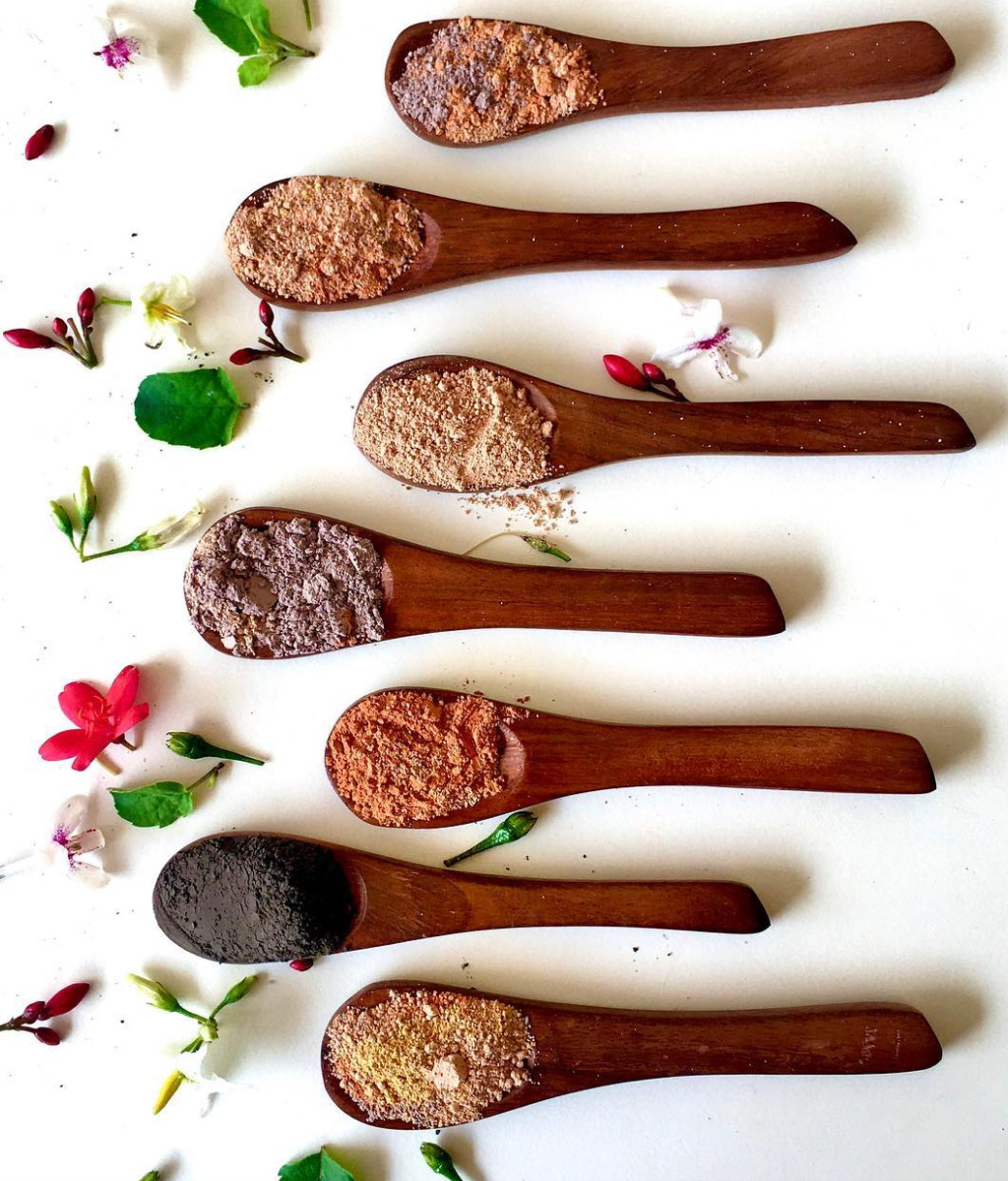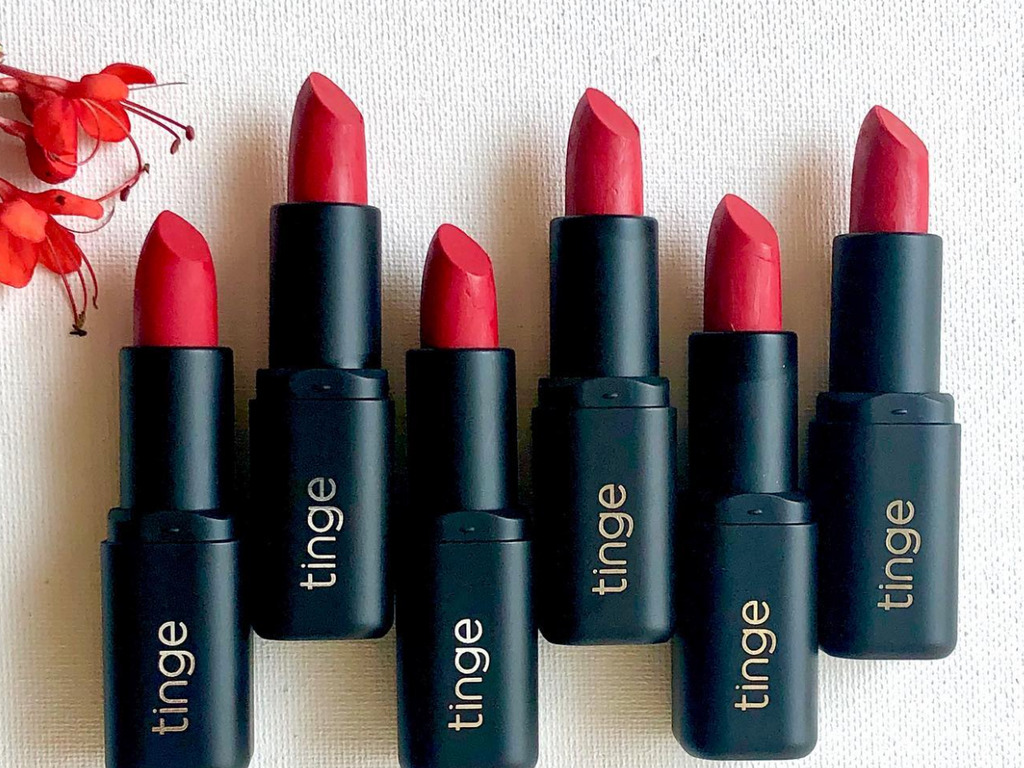4 Mins Read
Bengaluru-based startup Tinge offers a range of cruelty-free and vegan cosmetics along with options of customising products as well as refilling the empty ones in an effort to provide sustainable, animal-free and zero-waste beauty choices to Indian consumers that are also paraben-free and sulphate-free.
Founded in 2014 by Sabrina Suhail, a makeup artist with over 15 years of experience, Tinge offers consumers a wide range of vegan makeup products including lip balm, lipstick, foundation and concealer developed with minimal machine intervention.
Seven years back, Suhail, a makeup artist herself, was asked by one of her clients if the beauty products she used in her work had animal-derived ingredients, which inspired her to review all the ingredients in the brands she worked with.
Finding few to none in the Indian market, Suhail decided to start her own line of vegan and cruelty-free products to fill the gap. For the first three years, she researched existing clean beauty products to get a sense of the market.
When I looked in-depth into the ingredients, I realised that brands use chemical names which people believe are just a chemical and don’t know that it is extracted from a certain animal. It was quite shocking to me as to why they would use animal products when plants can make good ingredients too
Sabrina Suhail, founder of Tinge
In an interview with Herstory, Suhail said that her academic background in chemistry and botany helped her understand the beauty industry better. “When I looked in-depth into the ingredients, I realised that brands use chemical names which people believe are just a chemical and don’t know that it is extracted from a certain animal. It was quite shocking to me as to why they would use animal products when plants can make good ingredients too.”
According to the company’s website, Tinge, which bills itself as ‘India’s first handmade cosmetic brand’, all the products are “handcrafted by seasoned make-up artists, who understand and honour the style, spirit, & sensibility of each individual consumer and what they need.”
Looking to eco-upgrade your beauty routine? Check out our list of cruelty-free beauty brands that are doing sustainability right.
If there’s one industry that has proved perhaps surprisingly resilient despite the global pandemic, it’s the beauty sector, which is currently worth over US$500 billion globally, with analysts predicted it will grow to US$820 billion by 2023. According to the Euromonitor International study, India ranks eighth globally, with cosmetic and personal care sales in the country worth US$14 billion.

One of Tinge’s USPs is its customizable options, whereby the customer can pick a colour and fragrance of their choice and change the standard options, with a transparent model that allows them to watch the entire process. “Once their preferred formulation is sold, the remaining is discarded and the same product is not sold again. This is a first-of-its-kind offering and many haven’t heard of the customised concept in makeup. That was usually restricted to clothes or haircuts but no company customises a foundation or an eyeliner for you.”
Customers can get their products customised by sending in pictures of themselves, and then choose colour and fragrance options. “The make up that you buy is not mass produced, but is carefully created by someone who understands what you need. The base wax, colours, aromas, glitter are chosen as per your order and you even get to name your own lipstick.”
Suhail adds that the ability for customers to get personalised lipsticks was a big plus during COVID. “There were hardly any sales during the lockdown but we saw constant growth in lipstick sales over time because this is something quick to put on before a call.”
Additionally, Tinge allows customers to refill their products instead of throwing out the empty packaging in an effort to reduce the waste that is rampant across the cosmetics industry. The website states that customers can “return containers to get 15% off your next purchase. We will wash, sanitize, refill, and return your repeat purchase.”
Suhail also underlined the difficulties for beauty brands when it comes to product testing and obtaining certifications, highlighting cost as a deterrent. “You have to really think if you want a particular license on your packaging as we are a small company. We let go of some stamps like eco-certification and our customers have been pretty okay without it.”
Tinge’s products are currently sold via their website and in-store, and are also available on 15 different Indian e-commerce platforms such as Vanity Wagon, Sublime Life, LBB, and soon, the beauty superstore Nykaa. At the moment, the customisable option is only accessible directly through Tinge.
With an initial investment of INR 46 lakh (approx. US$63K), Tinge says the company has grown between 30% and 40% between 2018 and 2020, a healthy start for such a young brand. Looking to the future, Suhail plans to launch Tinge stores across India.
Online retailers that sell beauty products are also trying to make sustainable changes. For instance, Amazon India has introduced packaging-free shipment (PFS) and introduced ‘paper cushions’ into its packaging process along with working with agencies to collect plastic waste. Nykaa also begun using sustainable packaging options, with cardboard and paper bubble wrap.
If you’re in Hong Kong and are looking for clean beauty products and are on a budget, here is a handy list to keep in mind whilst shopping.
Lead image courtesy of Tinge.



